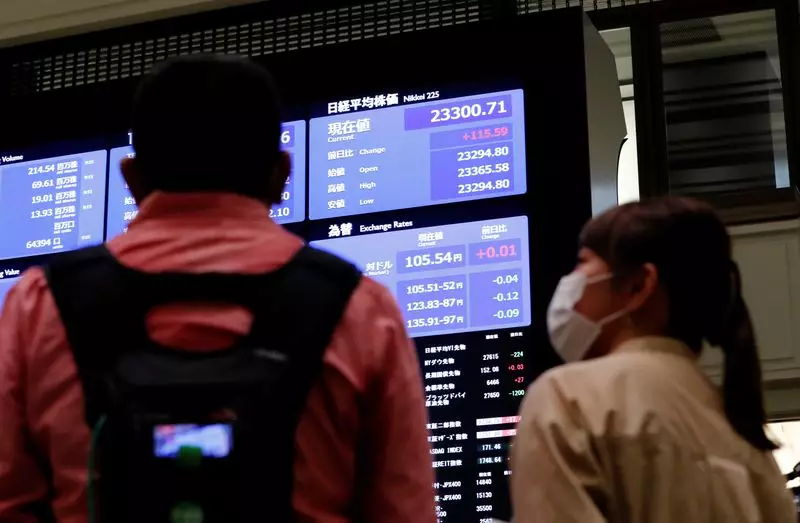In the week ending July 5th, foreign investors showed a significant interest in Japanese stocks. They made substantial investments, with a net purchase of 916.05 billion yen, marking the highest weekly net purchase since January 12th. This surge in investment was attributed to the market rally and optimism regarding solid corporate earnings in the second half of the year.
The Nikkei share average experienced a notable increase of 3.36% last week, achieving its best weekly gain since March 22nd. Similarly, the broader Topix index advanced by 2.65%. The Nikkei reached an all-time high, surpassing 42,000 points for the first time, while the Topix index recorded a record closing high of 2,929.17.
The positive performance of U.S. megacap growth stocks had a ripple effect on Japanese technology shares. Companies like SoftBank Group saw an increase of 8.04%, while semiconductor testing equipment maker Advantest rose by 3.2%. This interconnectivity between global markets highlights the importance of cross-border investments.
On the other hand, foreign investors showed a lack of interest in Japanese bonds for the fourth consecutive week. They sold long-term bonds worth a net 228.8 billion yen and short-term instruments totalling 876.9 billion yen. This trend indicates a shift in investment preferences towards equities rather than fixed-income securities.
Japanese investors, on the other hand, re-entered the overseas debt markets after a two-week selling streak. They acquired long-term foreign bonds of a net 237.7 billion yen and short-term securities amounting to about 96.6 billion yen. However, Japanese investors withdrew a significant amount of 555.6 billion yen from foreign equities, marking their largest weekly net disposal since May 31st.
The dynamics of foreign investment in Japanese stocks reflect the interconnected nature of global financial markets. The shift in investment trends, both by foreign and Japanese investors, underscores the importance of diligent market analysis and strategic decision-making. As the market landscape continues to evolve, investors must adapt to changing conditions to optimize their investment portfolios.

